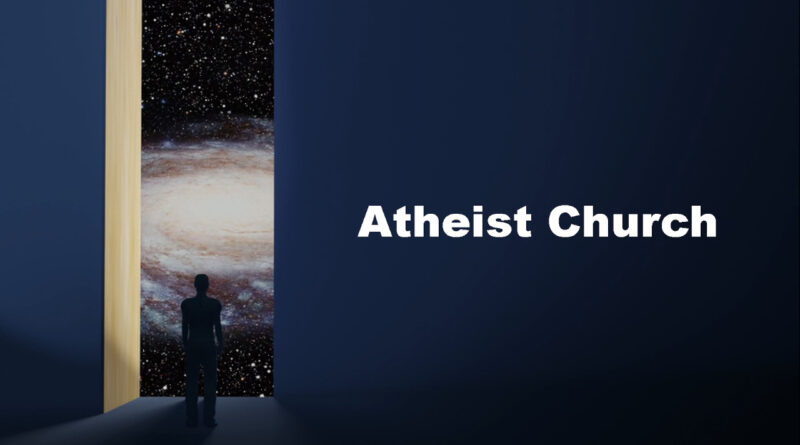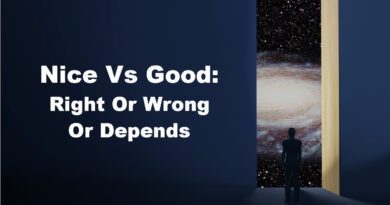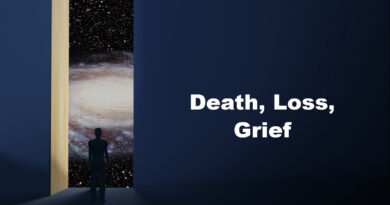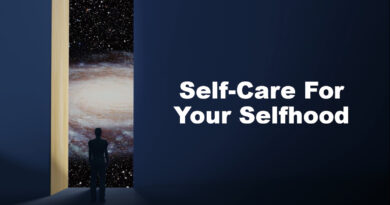Atheist Church
Atheism is the lack of belief in god. It is a personal choice. Atheism isn’t weird; it’s rational.
Atheists are critical thinkers. They believe that the Earth is round, not flat, based on scientific evidence. They dismiss the belief in god because god’s existence has no scientific basis.
If you search for fellow atheists on social media, however, you’ll find a crowd of god-bashers and religion-haters.
I obviously know that thousands of children, youth, and adults were abused by the Christian clergy. These abuse survivors are justified in being angry with – and often hateful toward – their abusers. But they were not abused by god or by religion. They were harmed by criminals who used their affiliation with the church to commit and conceal their heinous crimes.
Abuse survivors constitute one section of the hatred-filled atheists. The other is atheists – unaffected by the church’s crimes – who have an unrelenting need for ridiculing god and religion. As much as I can imagine that Christian church abuse victims’ hatred extends beyond the perpetrators to include god and religion, I don’t understand – or approve of – other atheists’ need to belittle god, religion, and by extension, religious people. (Taken to the extreme, the hatred of god or religion could inspire vandalism of houses of worship, religious art, or cemeteries.) Abhorrent, isn’t it? Worse, a group of hate-mongers is referred to as a hate group. Real atheists aren’t hate-mongers; they simply don’t believe in god.
Neither belief nor disbelief releases you from being civil. You don’t have to share other people’s beliefs but you have to respect their right to have them.
Zealotry – either religious or atheistic – is disgusting. Every person is free to choose their convictions. But the freedom to hold convictions of one’s choice doesn’t entitle anyone to intolerance or disrespect toward others.
Look at it this way. Life is a challenge and to master it, each person makes a choice on how to live, survive, and succeed.
Some choose atheism and face life as it is. Some choose to believe in god to gain support for the process of living. For atheists there is ethics. For Christians – and other believers – there is the moral law of their god. If you think about it, theistic religions urge their followers to be virtuous using a happy afterlife as a reward for a virtuous life and eternal damnation as a punishment for a lack of virtue. The reward and punishment issues aside, theistic religions teach and encourage moral values. That’s a good thing.
Some people need to be bribed and threatened to be good. Some people find comfort in the belief that as “god’s children” they are not responsible for their actions.
And then, there is atheism. Atheists choose whether or not to be ethical by themselves, without the expectation of reward or punishment. Atheists have to accept responsibility for their actions. They know they are accountable and won’t be forgiven.
Myself, I believe that both, religions and atheism have benefits and disadvantages.
Benefits of theistic religions:
• worldview
• structure
• moral teachings
• the opportunity for catharsis (emotional reboot)
• rituals
• inspiration
• community
• sense of belonging
Disadvantages of theistic religions:
• An ideology that cannot be substantiated by rational means
• The requirement of faith in the unsubstantiated
• Unverifiable promises
• Unverifiable hope
Benefits of atheism:
• rationality
• common sense
Disadvantages of atheism as compared to theistic religions:
• atheism lacks the elements of a complete worldview
• atheism lacks structure
• atheism lacks ethical teachings
• atheism lacks the opportunity for catharsis (emotional reboot)
• atheism lacks milestone celebrations
• atheism lacks inspiration
• atheism lacks community
• atheism lacks a sense of belonging
Churches provide a complete system of beliefs, structure, moral teachings, emotional care, and community. Atheism doesn’t.
The HUMANIST Holistic Church blends atheism with the benefits of a traditional church.
Benefits of Holistic Religion:
• rational worldview
• structure
• humanistic ethics
• opportunity for catharsis (emotional reboot)
• milestone celebrations
• inspiration
• community
• a sense of belonging
Holistic Religion is Humanist (atheist) and doesn’t involve faith in the supernatural.
The HUMANIST Holistic Church fills the void left by theistic religion by providing many benefits of a traditional church without its disadvantages.
“I am alone. There is no God where I am.” Alister Crowley
But it doesn’t – and doesn’t it have to – mean a lack of substance, worldview, ethics, meaning, self-empowerment, community, inspiration, purpose, structure, sense of belonging, or disrespect for the beliefs of others.
A religion based on rationality and ethical values can have – and in the case of the Holistic Religion has – all the benefits of theistic religion WITHOUT hidden agenda or brainwashing. No one is asked to believe. No one is asked to compromise their critical thinking. No one is asked to obey. There are no false promises or false threats. Instead, there is the reality of our world and life that’s enriched, supported, and valued.
The truth is, each of us is alone. It is better to be alone, together.
#AtheistChurch #BenefitsOfTheisticReligions #BenefitsOfAtheism #DisadvantagesOfTheisticReligions #DisadvantagesOfAtheism #BenefitsOfHolisticReligion #HolisticReligion #HumanistHolisticChurch
If you enjoy the HUMANIST Holistic Church podcast, like, follow, comment, and subscribe on Spotify or YouTube! You’re also welcome to leave a comment, below. (No login required!)





